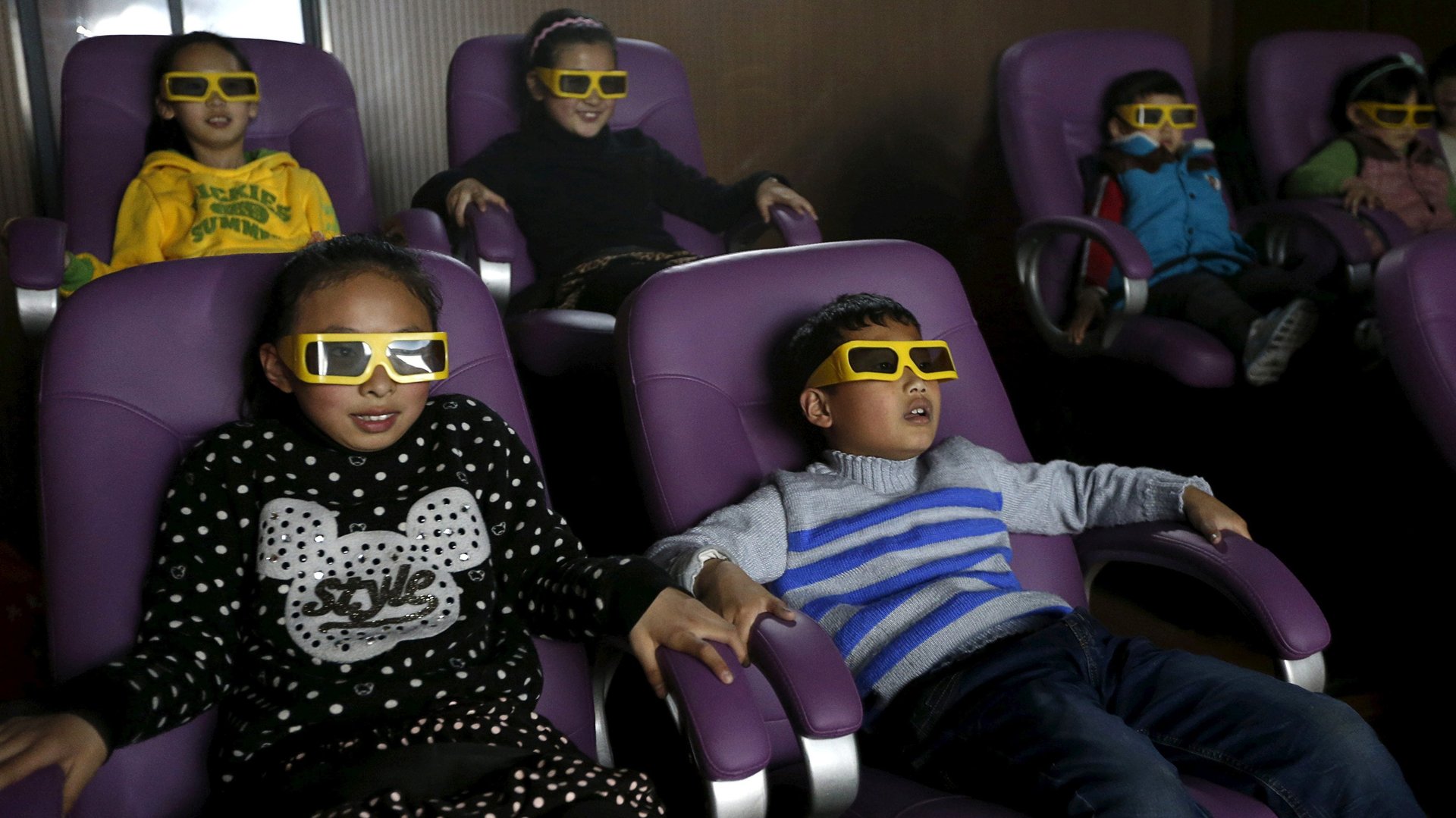China says bad film reviews, not bad films, are killing its box office
China’s film industry was quite a disappointment in 2016. The country’s box office went up just 3.6% last year, putting an end to a double-digit growth that had lasted for more than a decade. Shoddy domestic productions and a cutback in movie ticket subsidies by Chinese internet companies led to the worse-than-expected performance, analysts say.


China’s film industry was quite a disappointment in 2016. The country’s box office went up just 3.6% last year, putting an end to a double-digit growth that had lasted for more than a decade. Shoddy domestic productions and a cutback in movie ticket subsidies by Chinese internet companies led to the worse-than-expected performance, analysts say.
But Chinese officials have found an unlikely culprit to blame: film reviews.
On Jan. 11 China’s top media watchdog, SARFT, announced the setup of the country’s first national online film critics committee, to be administered by SARFT’s own China Film Critics Association. The new committee, with 19 film critics and scholars as its members, aims to change the “chaotic” film reviewing system in China, according to state media reports. (SARFT, though sounding like an evil organization in a bad action movie, stands for the “State Administration of Press, Publication, Radio, Film and Television.”)
With that goal in mind, the committee issued seven “conventions” (link in Chinese) for online film critics, including “telling the truth,” “respecting every moviegoer’s right to like or dislike a film,” and “avoiding abusive language to attack filmmakers.”
At the end of December, three would-be blockbusters debuted lower than expected in China, each receiving waves of scathing reviews online. Among them was The Great Wall, the first genuine Hollywood-China co-production. Starring Matt Damon, the fantasy-action epic had a $150 million production cost and has so far generated just $180 million in ticket sales. The film currently holds a 5/10 rating on Douban, China’s IMDb-esque film portal, with many moviegoers calling it “messy” and “mindless.” Western critics thought the same. A Hollywood Reporter review mentioned the plot’s ”sheer lack of logic” and concluded the movie was “hardly epic.”
But China’s state-controlled media outlets have decided that negative reviews hurt the film industry. A Dec. 27 article (link in Chinese) published on the People’s Daily website argued that “vicious and irresponsible” reviews written to grab attention have “severely damaged the ecosystem of the Chinese film industry.” The piece called out Douban and rival film portal Maoyan for their “surprisingly low” ratings of the three December films, and suggested their reviews might have been manipulated. State newswire Xinhua published a commentary (link in Chinese, cached version) in a similar tone, though it was later deleted. SARFT has reportedly talked to the two sites over the matter.
Zhang Yiwu, head of the newly formed committee, issued a Jan. 13 statement saying the group doesn’t represent the government (link in Chinese) and wasn’t established in response to the recent criticism of film reviews. But he also warned against the writing of reviews by ”extreme voices.”
Zhang, a Chinese language and literature professor at Peking University, appears to have close ties with property and entertainment giant Wanda Group, also a co-producer of The Great Wall. He has hailed Wanda (link in Chinese) as a company that “has changed millions of Chinese people’s lives,” and he’s called its founder Wang Jianlin (link in Chinese) a “Chinese symbol.”